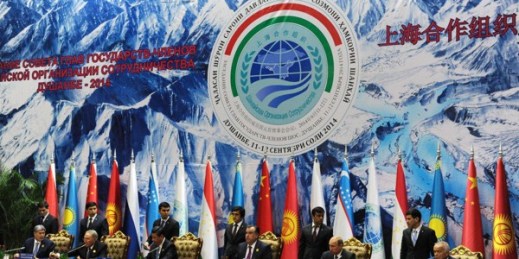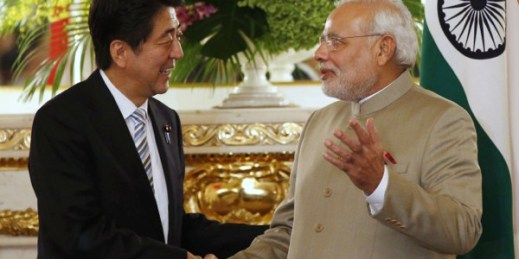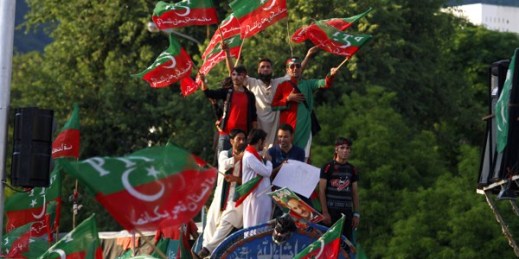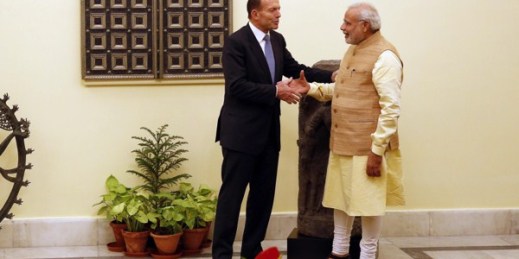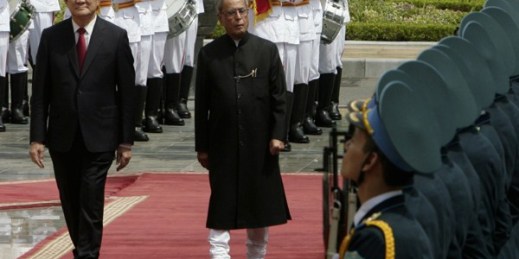
On his visit to Vietnam in mid-September, Indian President Pranab Mukherjee assured his hosts that India would always be their “all-weather friend.” While some may read too much into the timing of that statement, delivered on the eve of Chinese President Xi Jinping’s trip to India, agreements signed by India and Vietnam on energy and defense during Mukherjee’s visit are certain to get Beijing’s attention. After all, they come at a time when China and Vietnam have renewed negotiations over their maritime disputes in the South China Sea and as India pushes back against China’s plans for maritime expansion across […]

